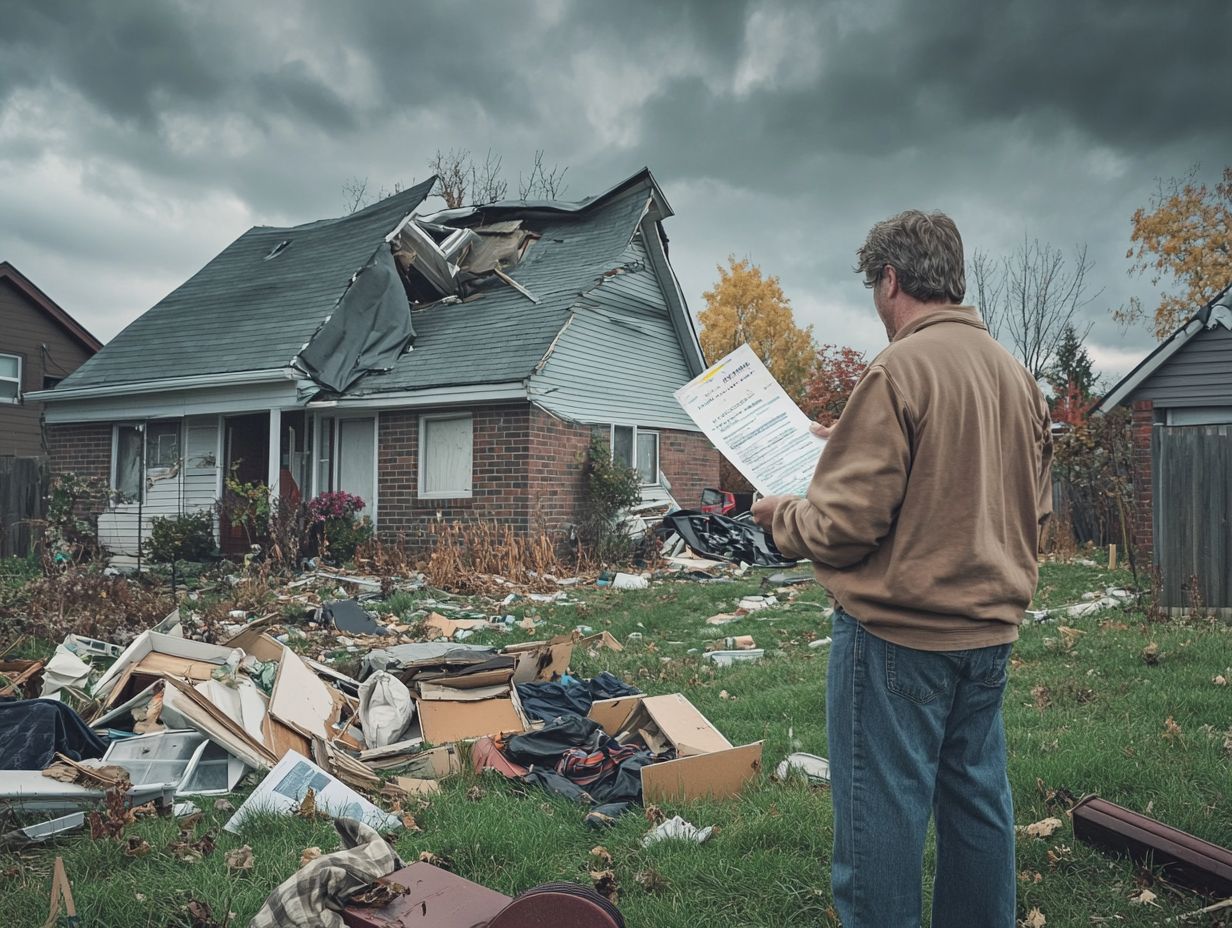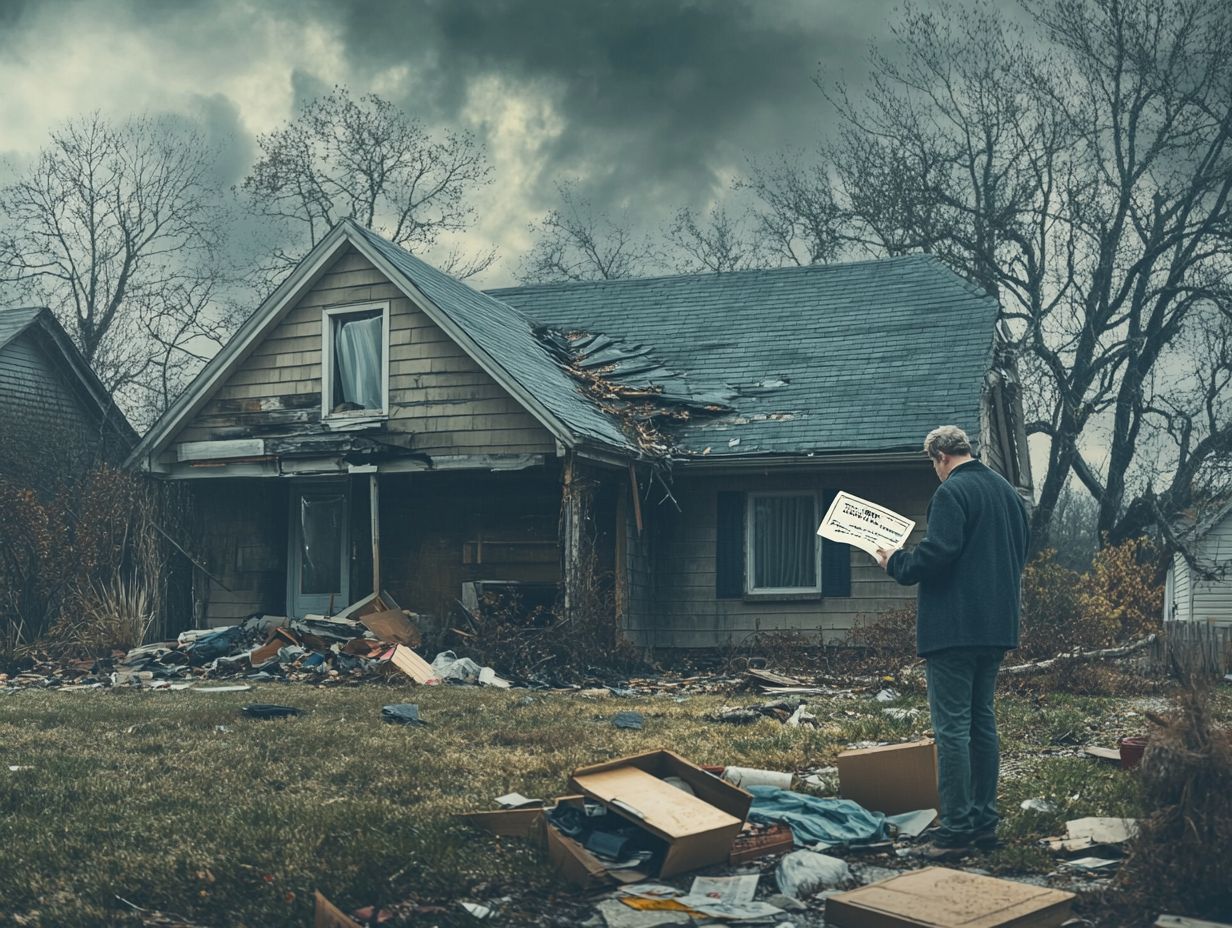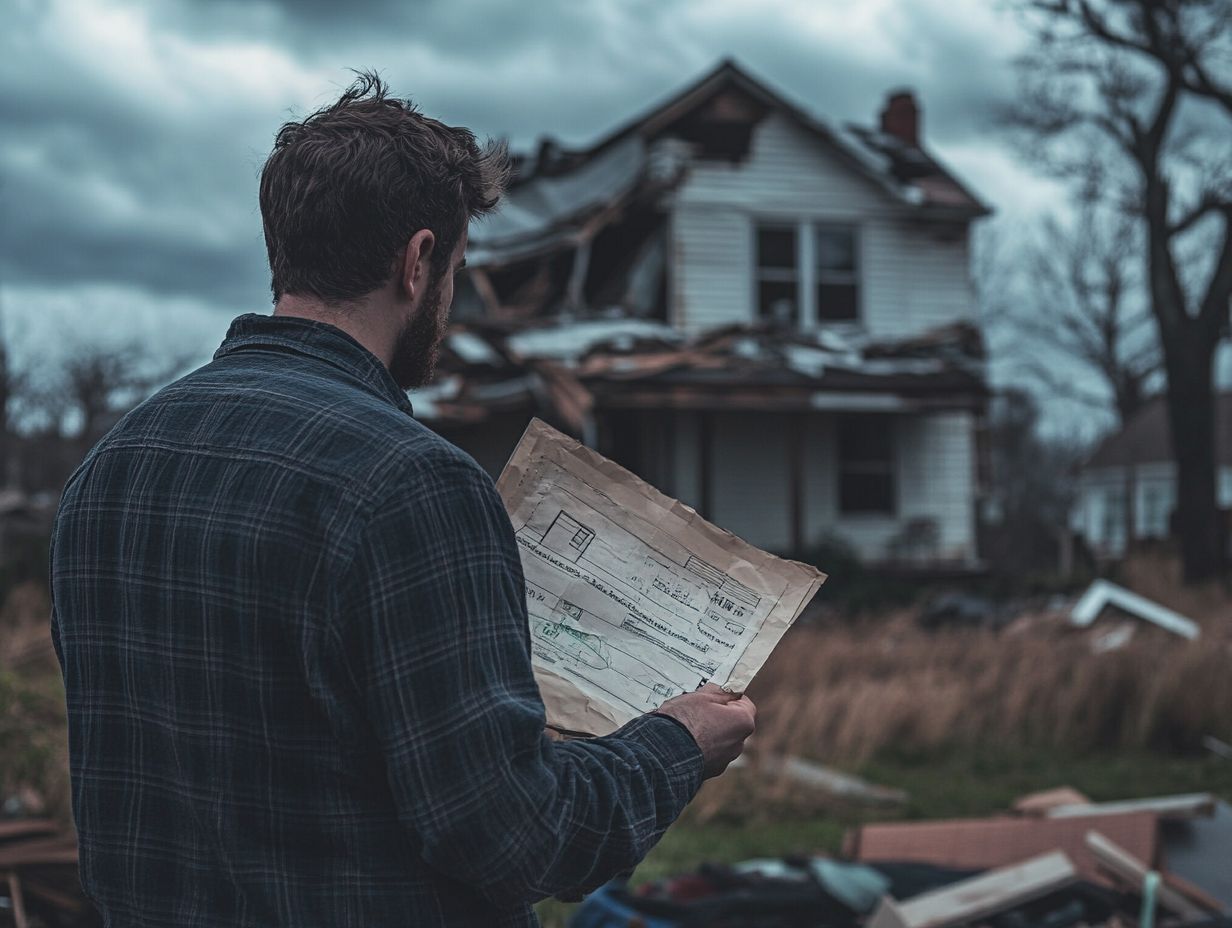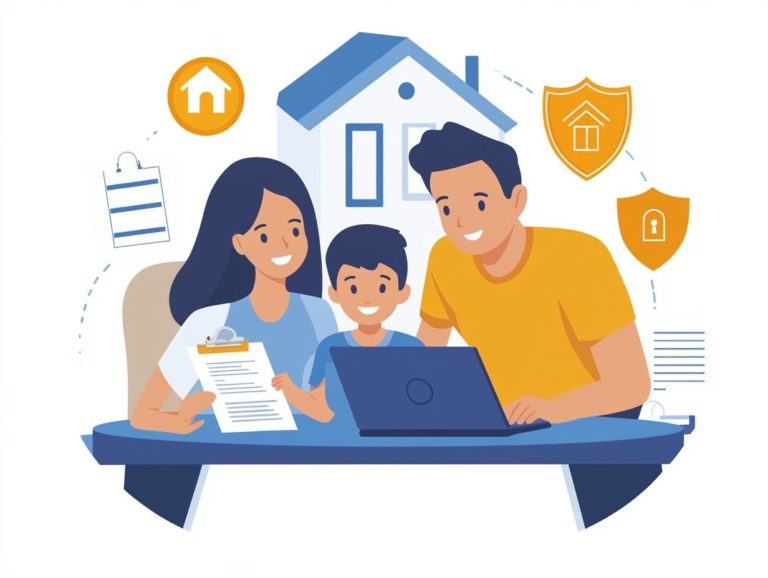What Happens if You Don’t Pay Home Insurance?
Home insurance is crucial for safeguarding your investment and providing you with peace of mind.
You might not fully grasp the implications of overlooking your premium payments. This article delves into what home insurance entails, the potential fallout from missed payments including loss of coverage and possible legal consequences and various strategies to manage unpaid premiums.
Discovering effective budgeting tips and taking advantage of discounts will empower you to keep your home protected without straining your finances.
Contents
Key Takeaways:

- Not paying home insurance can result in loss of coverage, leaving you vulnerable to financial challenges and legal consequences.
- Options for dealing with unpaid home insurance include payment plans and switching providers.
- It’s important to prioritize budgeting and planning ahead to avoid future issues.
- Utilizing discounts, such as bundling policies or choosing a higher deductible, can help manage home insurance payments and ensure coverage is not interrupted.
Understanding Home Insurance
Grasping the nuances of home insurance is essential for homeowners like you, seeking robust financial protection against unexpected events that could lead to property damage or liability claims.
Homeowners insurance offers vital coverage options that not only safeguard your property but also meet the criteria established by mortgage lenders.
Numerous insurance companies provide a range of policies designed to suit your unique needs. This ensures that you can protect your investment while enjoying the peace of mind that comes from being prepared.
What is Home Insurance?
Home insurance, often known as homeowners insurance, is a vital policy designed to provide you with financial protection against damages to your home and its contents. This essential coverage acts as a safety net, shielding you from significant expenses that can arise from unforeseen events such as fire, theft, and natural disasters.
Homeowners insurance typically covers various elements, including dwelling coverage, personal property coverage, and liability protection each with specific limits that dictate the maximum payout for any claims you might file.
There are different types of policies available for you to consider, such as:
- HO-1 basic policies, which offer minimal coverage.
- Comprehensive HO-5 policies, providing extensive protection for both your home and personal belongings.
The application process for homeowners insurance is equally important. Being thorough and accurate during this stage ensures that you receive the proper coverage tailored to your individual needs.
This effectively safeguards you against potential financial burdens during times of trouble.
Consequences of Not Paying Home Insurance
Neglecting to pay your home insurance premiums can have serious repercussions. An insurance lapse could mean losing your coverage, leaving you unprotected against property damage and liability claims.
In such cases, mortgage lenders may intervene and impose insurance mandated by lenders when you don t pay your premiums. This can drastically inflate your insurance rates.
This not only exposes you to potential financial risks but also creates a coverage gap that could leave you vulnerable.
Stay ahead! Protect your investment by keeping your premiums on track.
Loss of Coverage

A lapse in insurance coverage can leave you vulnerable to serious risks, such as natural disasters and liability claims. Without the right insurance protection in place, the financial repercussions of events like hurricanes, floods, or earthquakes can be overwhelming.
This results in costly repairs and potential loss of property. It also opens the door to liability issues; for instance, if a visitor sustains an injury on your property, you could be facing significant legal fees.
To shield yourself from these daunting realities, it s essential to explore a range of coverage options offered by various insurance providers.
Engaging with multiple insurers not only helps you uncover tailored policies that address your specific vulnerabilities but also provides you with a comprehensive understanding of the claims process and available support services.
Legal and Financial Implications
Neglecting home insurance can lead to serious problems. Homeowners risk legal action from mortgage lenders and even allegations of insurance fraud.
Missing premium payments may result in penalties and jeopardize property. This could lead to foreclosure as lenders expect homeowners to maintain insurance.
Some may consider insurance fraud due to insufficient coverage. This risky move can result in criminal charges and worsen financial difficulties.
Homeowners must act now to secure comprehensive insurance coverage that protects their property and financial interests.
Options for Dealing with Unpaid Home Insurance
Facing unpaid home insurance? You have several options to explore.
Payment plans and switching providers can help you regain coverage and ease financial strain.
Payment Plans and Extensions
Payment plans and extensions can be excellent lifelines. Approach your insurance provider as soon as financial challenges arise.
Be ready to clearly explain your situation, including any issues affecting your ability to pay. Insurers often offer flexible terms, such as reduced monthly payments or extended payment periods.
These options help you avoid policy lapses or penalties. Without them, you risk losing coverage and facing unexpected expenses that disrupt your financial stability.
Switching Providers

Switching insurance providers can be a smart move for homeowners seeking better rates and coverage. Start by comparing quotes from different providers.
Evaluate insurance options tailored to your needs, including coverage limits, deductibles, and discounts. By assessing these elements, you can find policies that offer the most value.
While changing companies may save you money and improve coverage, consider potential drawbacks like losing loyalty discounts or the need to build trust with a new provider.
Tips for Managing Home Insurance Payments
Effective management of home insurance payments requires thoughtful budgeting and planning. This approach can cut costs and maximize discounts.
Budgeting and Planning Ahead
Budgeting and planning are key strategies for meeting your insurance payments. Use effective techniques like the zero-based budget method or the envelope system to allocate funds for insurance costs.
Establishing an emergency fund helps handle unexpected expenses. Regularly review your budget to keep up with changes in premiums or coverage levels.
By prioritizing these financial practices, you safeguard your property and gain peace of mind, giving you the power to navigate your responsibilities confidently.
Utilizing Discounts and Savings
Insurance discounts can help you save on your policy premiums and lower your costs over time.
Explore options provided by different insurers. You can often find discounts for bundling policies, staying claims-free, or installing security systems.
To qualify, you may need to meet certain criteria, like having a good credit score or belonging to specific organizations.
By taking advantage of these discounts, you’ll lower your immediate costs and enjoy long-term savings. Making informed decisions about your insurance can lead to lasting benefits and peace of mind.
Frequently Asked Questions

What Happens if You Don t Pay Home Insurance?
If you don’t pay your home insurance, your coverage stops. This means you’re not protected in case of a disaster or damage.
Will I Get a Warning Before My Coverage Lapses?
Most insurance companies will send you a notice before your coverage stops. This gives you a chance to make a payment and avoid losing coverage.
What Happens if I Miss One Payment?
If you miss one payment, your insurance company might offer a grace period. Contact them quickly to avoid losing coverage.
Can My Insurance Company Cancel My Policy if I Miss Payments?
Yes, your insurance company can cancel your policy if you miss payments regularly. Communicate with them if you’re struggling to pay.
What Happens if I Get a Mortgage on My Home?
Even with a mortgage, you must pay for home insurance. If you don t, your lender may purchase insurance for you, often at a higher cost.
What Can I Do if I Can t Afford My Home Insurance Premium?
If your home insurance premium is too high, contact your insurance company. They may offer payment plans or help you adjust your coverage for lower costs. You can also shop around for a more affordable policy.





